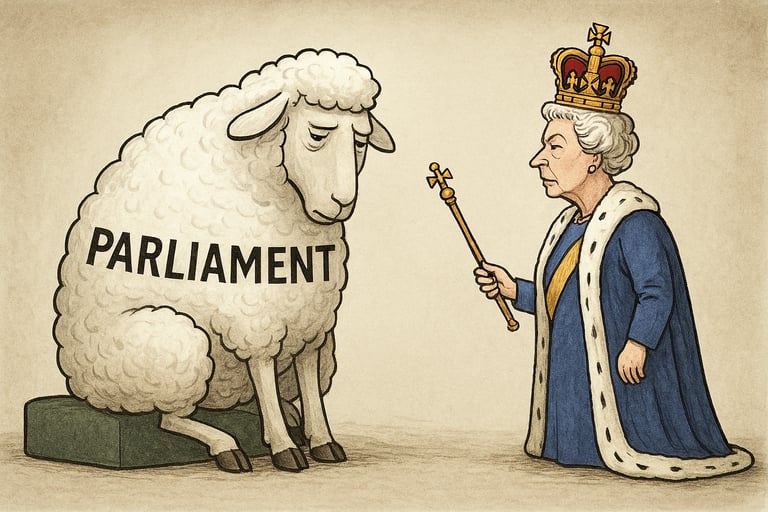Why is Parliament so meek towards Royalty?
Parliament holds real power. Why won't it act in the interest of the people it represents?
10/12/20251 min read
For all the pomp and pageantry of Britain’s constitutional monarchy, one fact is often overlooked: Parliament holds the real power. In theory, MPs could legislate tomorrow to reform royal finances, to tax the Duchies, to end exemptions, or to scale back the monarchy’s public funding. The Commons has the authority; the Lords would likely follow. So why, when it comes to the Windsors, does Parliament so often act like a timid servant rather than a sovereign body.
Part of the answer lies in habit. Centuries of deference have bred a culture where the Crown is treated as untouchable, even though the actual Crown-in-Parliament is the very institution that gives our laws their force. MPs inherit this aura of reverence, often speaking of the monarchy in hushed tones that would feel absurd if applied to any other publicly funded institution.
Another part is political convenience. Few politicians are willing to pick a fight with royalty, fearing it could be spun as “un-British” or distract from their party’s agenda. It’s far easier to rail against benefits claimants or tax-dodging billionaires than to challenge the monarchy, even when the sums involved are just as obscene.
And then there’s the theatre of unity. In moments of crisis or ceremony, the royal family becomes a stage prop for “national togetherness”. To question their privileges risks being painted as divisive, and so Parliament stays silent — even when silence means enabling financial excess and constitutional absurdity.
But the truth is simple: Parliament is sovereign. The monarchy exists because Parliament allows it to. There is no legal barrier stopping MPs from requiring the royals to pay inheritance tax, or from scrutinising their opaque finances. What holds Parliament back is not law, but timidity.
A confident Parliament would remember that it serves the people, not the palace. And if Parliament can hold a prime minister to account, it can certainly do the same with a family whose wealth, exemptions, and privileges rest entirely on its approval.
Until then, we are left with the strange spectacle of a supposedly sovereign legislature bowing its head — not because it must, but because it chooses to.


